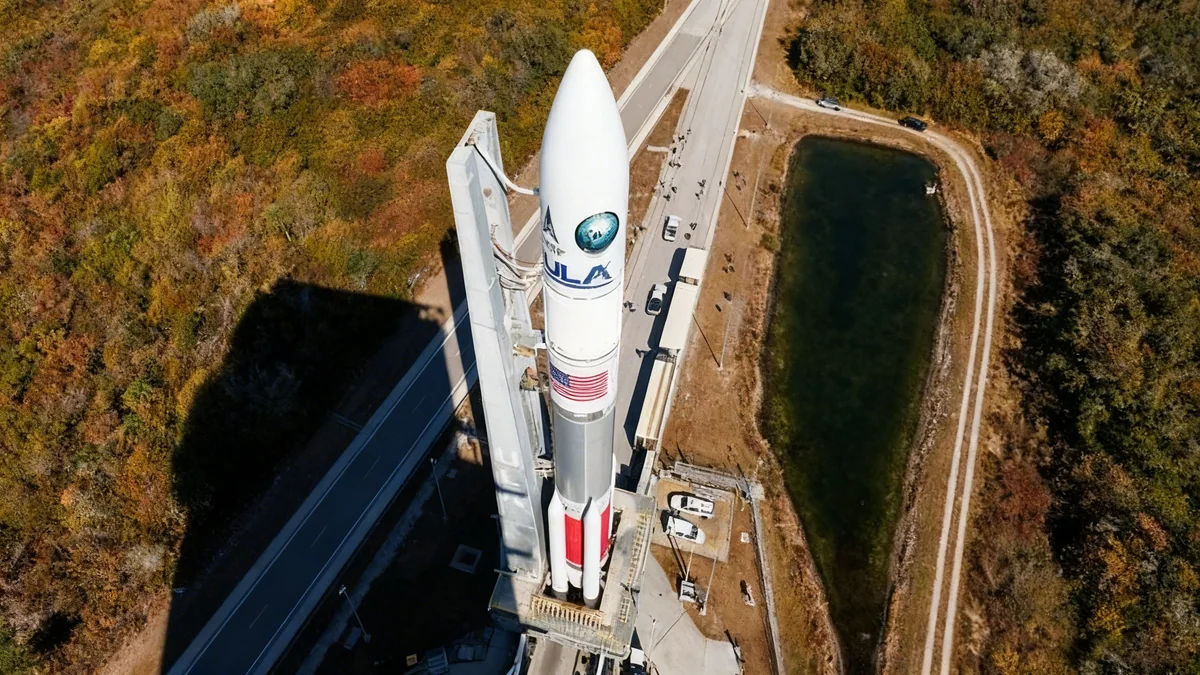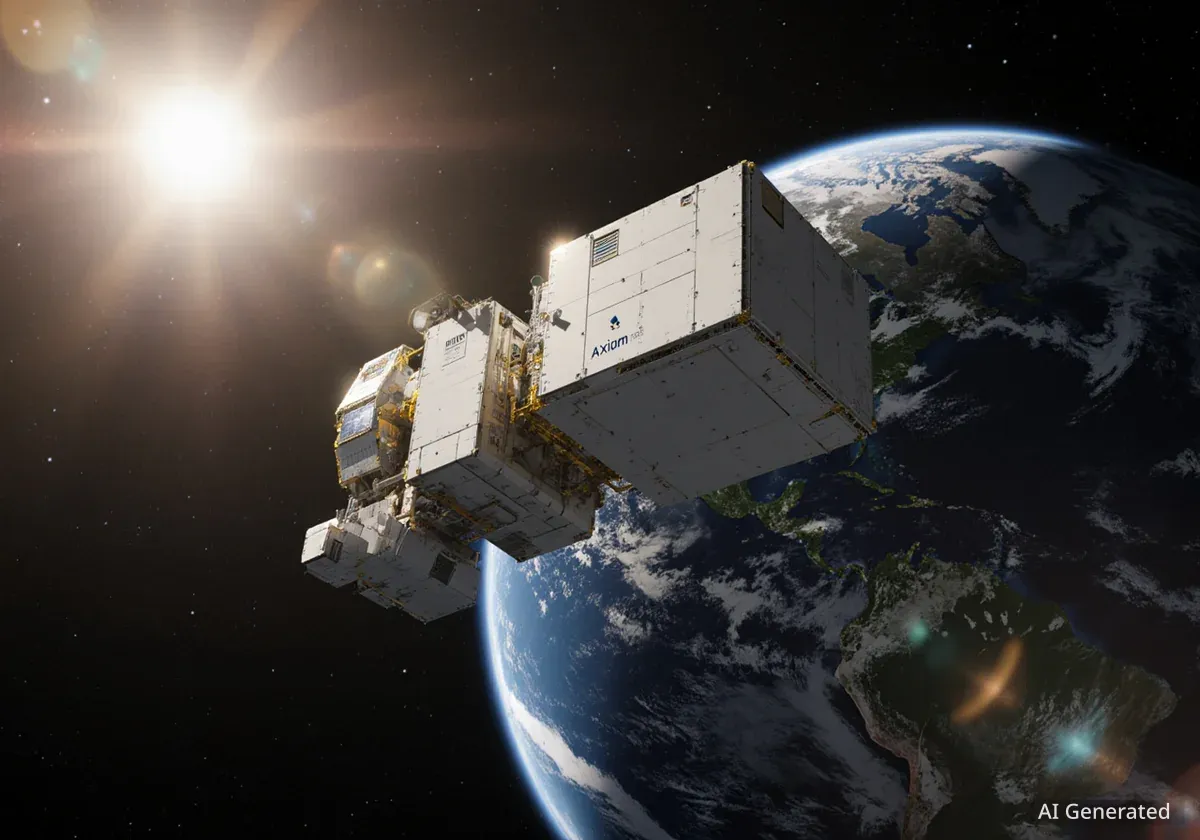The commercial space industry is experiencing a surge in investor interest, driven by expanding government programs and private sector innovation. Companies involved in satellite manufacturing, launch services, and aerospace technology are becoming central to modern portfolios, despite the inherent risks associated with the sector.
A recent market analysis highlights seven specific companies that have shown significant trading volume, indicating heightened attention from investors. These firms range from established aerospace giants to specialized technology startups, each playing a distinct role in the growing space economy.
Key Takeaways
- Seven companies in the space sector, including Boeing and Rocket Lab, are seeing increased trading activity.
- The space industry's growth is fueled by both government contracts and private commercial ventures.
- Investment in space stocks offers high growth potential but also comes with significant volatility due to high research and development costs.
- The companies highlighted operate in diverse areas such as launch services, satellite communications, defense, and advanced aviation.
Understanding the Modern Space Economy
The term "space stocks" refers to publicly traded companies whose primary operations involve the space industry. This includes a wide range of activities, from building rockets and satellites to providing launch services, enabling space tourism, and developing related technologies for observation and communication.
Investors are increasingly drawn to this sector to capitalize on the rapid expansion of commercial space exploration. The demand for satellite communications and Earth-observation services is a major driver of this growth. While the potential for substantial returns is high, the market is known for its volatility. The long development cycles and substantial research and development (R&D) expenses create financial risks that investors must consider.
Drivers of Sector Growth
The current expansion in the space sector is supported by two main pillars: sustained government investment and a dynamic private market. Government agencies like NASA continue to fund major projects, often relying on private contractors. Simultaneously, commercial companies are developing new markets for satellite internet, space tourism, and in-orbit manufacturing, attracting significant venture capital and public investment.
Key Companies in the Spotlight
The following seven companies have been identified based on their recent high trading volumes, signaling strong investor focus. Each occupies a unique niche within the broader aerospace and space ecosystem.
1. The Boeing Company (BA)
Boeing is a foundational player in the global aerospace industry. The company's operations are extensive, covering the design, manufacturing, and servicing of commercial jetliners and military aircraft. In the space sector, Boeing is a key contractor for government and defense programs.
Its Defense, Space & Security segment is responsible for developing satellites, missile defense systems, and human spaceflight platforms like the Starliner spacecraft. This deep integration with national security and civil space programs makes it a cornerstone of the industry.
2. AST SpaceMobile (ASTS)
AST SpaceMobile is focused on a highly ambitious goal: building the first space-based cellular broadband network accessible directly by standard smartphones. The company aims to provide global mobile coverage, eliminating connectivity gaps in remote and underserved areas.
This technology could fundamentally change global communications, but it also involves significant technological and regulatory challenges. The company's progress in deploying its satellite constellation is closely watched by investors focused on disruptive technologies.
3. Rocket Lab USA (RKLB)
Rocket Lab has established itself as a leader in the small satellite launch market. The company provides launch services for commercial and government clients using its Electron rocket, which is designed for frequent and cost-effective deployment of small payloads.
Beyond launch services, Rocket Lab is expanding into space systems. This includes designing and manufacturing spacecraft components and complete satellites through its Photon platform. This vertical integration allows the company to offer end-to-end solutions, from satellite design to deployment in orbit.
Market Projections
According to industry analysts, the global space economy is projected to grow significantly in the coming decade. Some forecasts suggest it could exceed $1 trillion by 2030, up from an estimated $469 billion in 2021. This growth is expected to be driven by satellite broadband and new commercial applications.
4. GE Aerospace (GE)
While often associated with its industrial heritage, GE Aerospace is a critical supplier to the aviation industry. The company is a leading producer of jet and turboprop engines for commercial and military aircraft. Its operations are divided into Commercial Engines and Services, and Defense and Propulsion Technologies.
GE's role in the space sector is primarily as a key supplier of advanced materials and components that are essential for building reliable aircraft and spacecraft. Its expertise in propulsion and high-performance systems is vital to the entire aerospace supply chain.
5. Kratos Defense & Security Solutions (KTOS)
Kratos specializes in providing products and solutions for U.S. national security priorities. The company operates in critical areas like unmanned systems, satellite communications, cybersecurity, and training solutions. Its Kratos Government Solutions (KGS) segment delivers microwave electronic products and space-related services.
The company is particularly noted for its work in drone technology and affordable, high-performance unmanned aerial systems. In the space domain, Kratos provides ground station infrastructure and satellite control systems, which are essential for managing orbital assets.
6. Archer Aviation (ACHR)
Archer Aviation is at the forefront of the emerging electric vertical takeoff and landing (eVTOL) aircraft market. These vehicles, often called "air taxis," are designed for urban air mobility, offering a new mode of transportation to bypass city traffic.
While not a traditional space company, Archer's work in advanced aviation, electric propulsion, and autonomous flight systems places it within the broader aerospace technology landscape. The development of eVTOL aircraft requires innovations in battery technology, materials science, and software that have parallels with the space industry.
7. Serve Robotics (SERV)
Serve Robotics operates in the autonomous delivery space, designing and operating low-emission robots for food delivery in urban environments. The company focuses on building self-driving robots that navigate public sidewalks to serve local communities.
Formerly known as Patricia Acquisition Corp., the company rebranded in July 2023. Although its primary focus is terrestrial, its expertise in robotics, autonomous navigation, and logistics software is relevant to technologies required for future planetary exploration and robotic missions in space.
Navigating Investment in the Space Sector
Investing in space-related companies requires a clear understanding of the market's unique characteristics. The sector is capital-intensive, with long timelines for product development and profitability. Success often depends on securing large government contracts or achieving significant technological breakthroughs.
For investors, diversification across different sub-sectors—such as launch providers, satellite operators, and component manufacturers—can help mitigate risk. As the commercialization of space continues to accelerate, companies that can provide reliable and cost-effective solutions are well-positioned for future growth.





